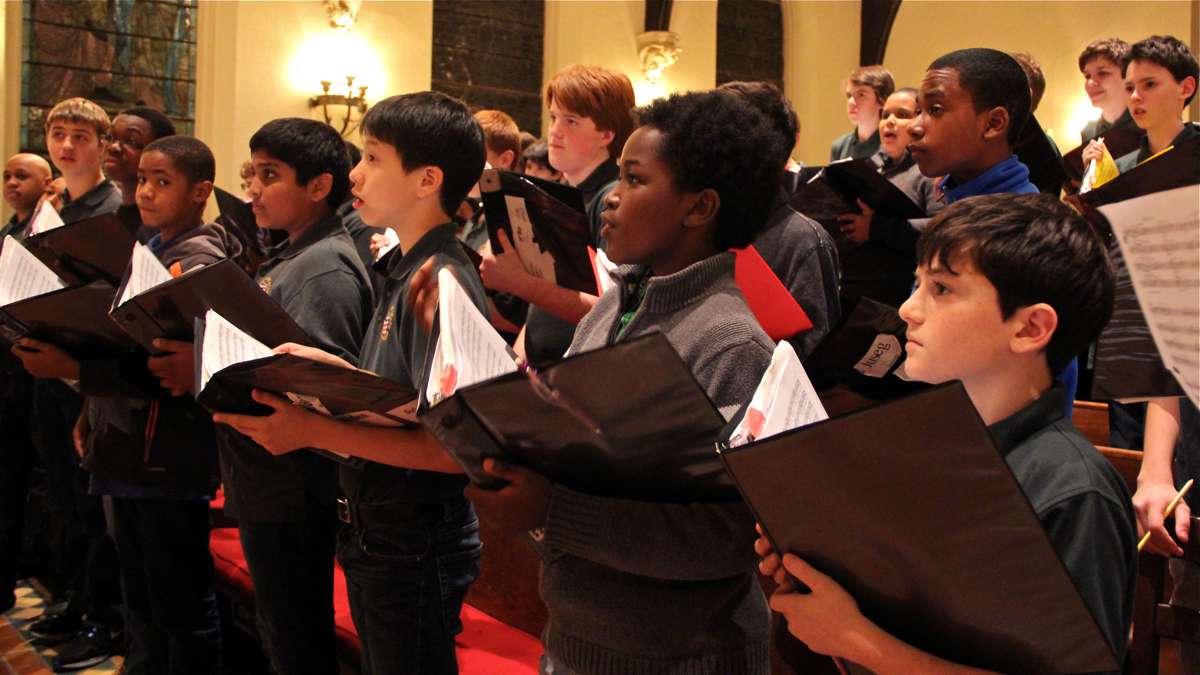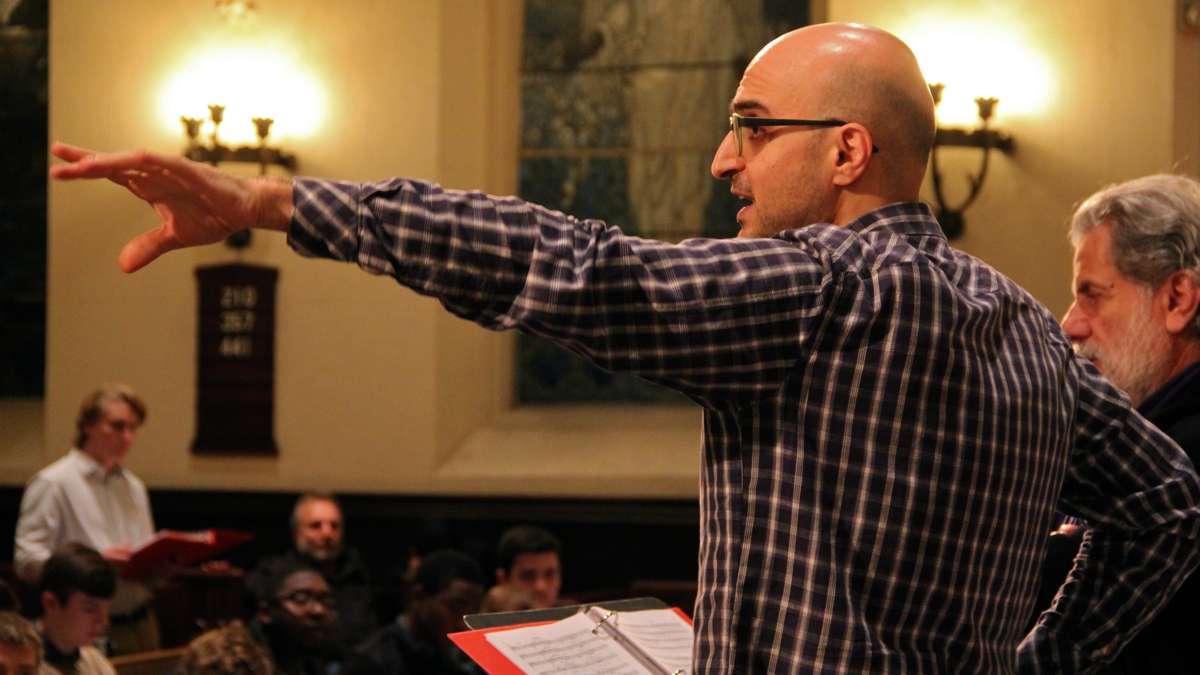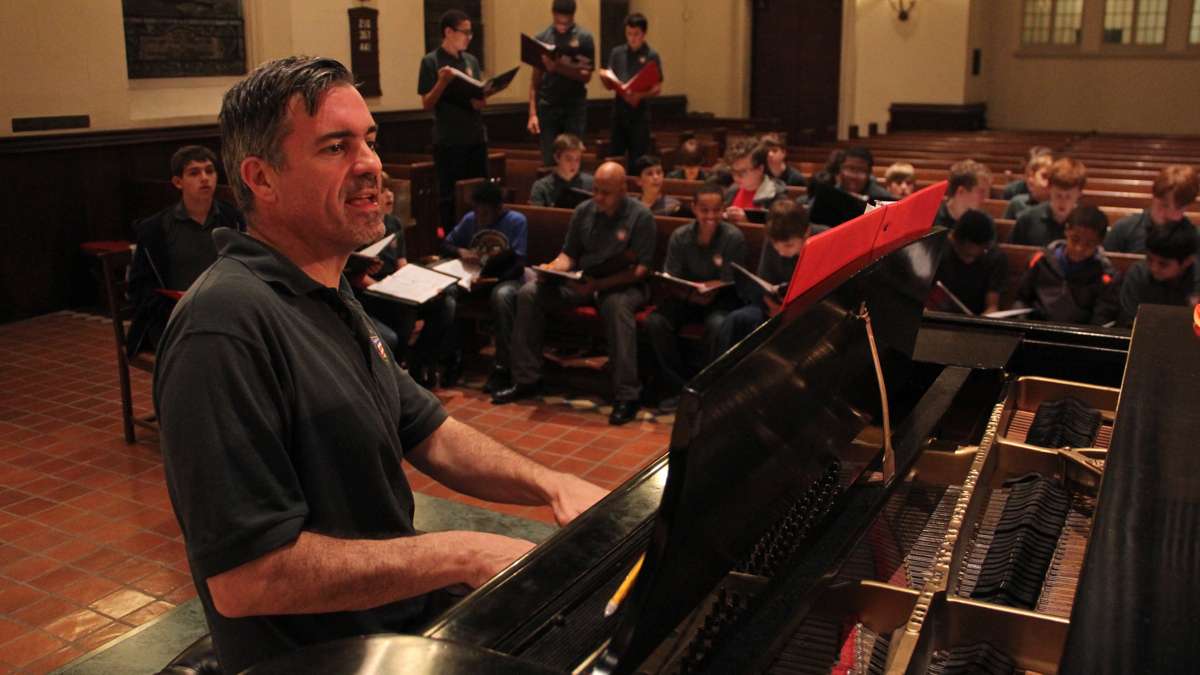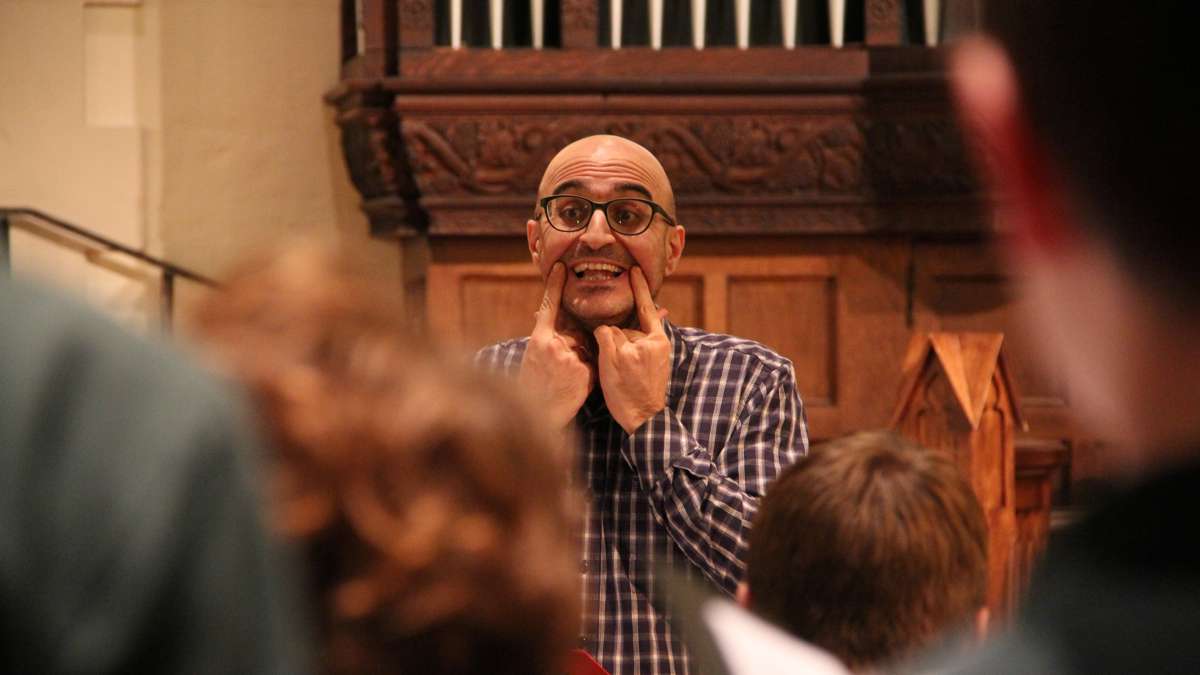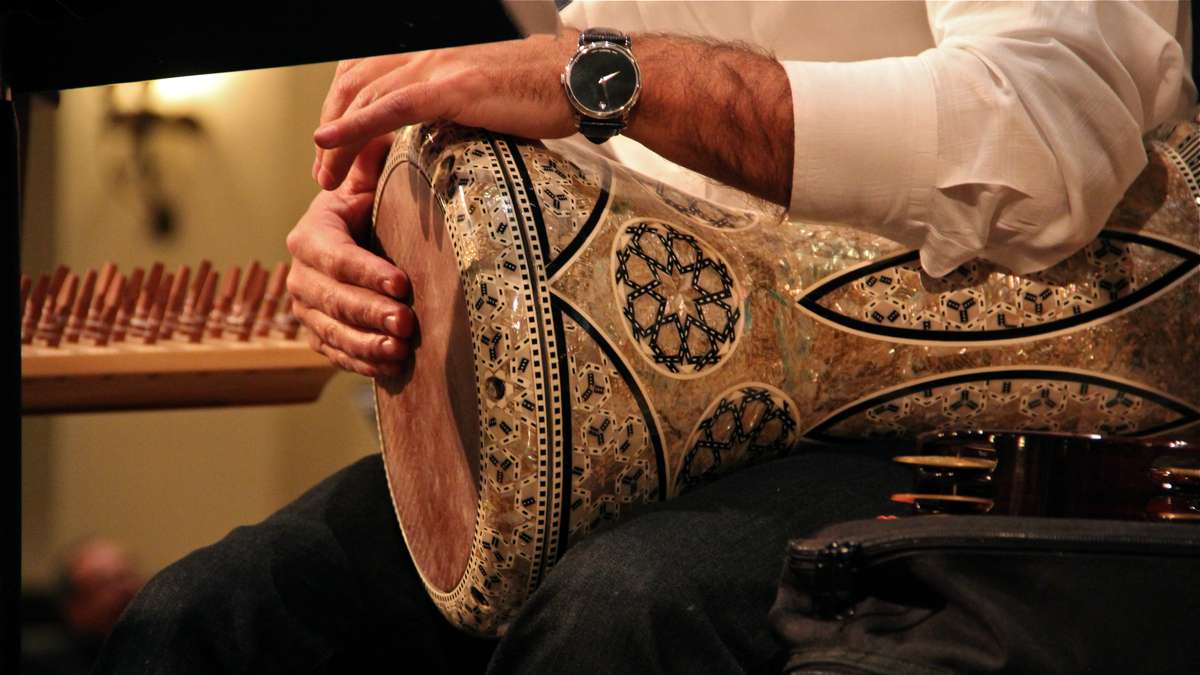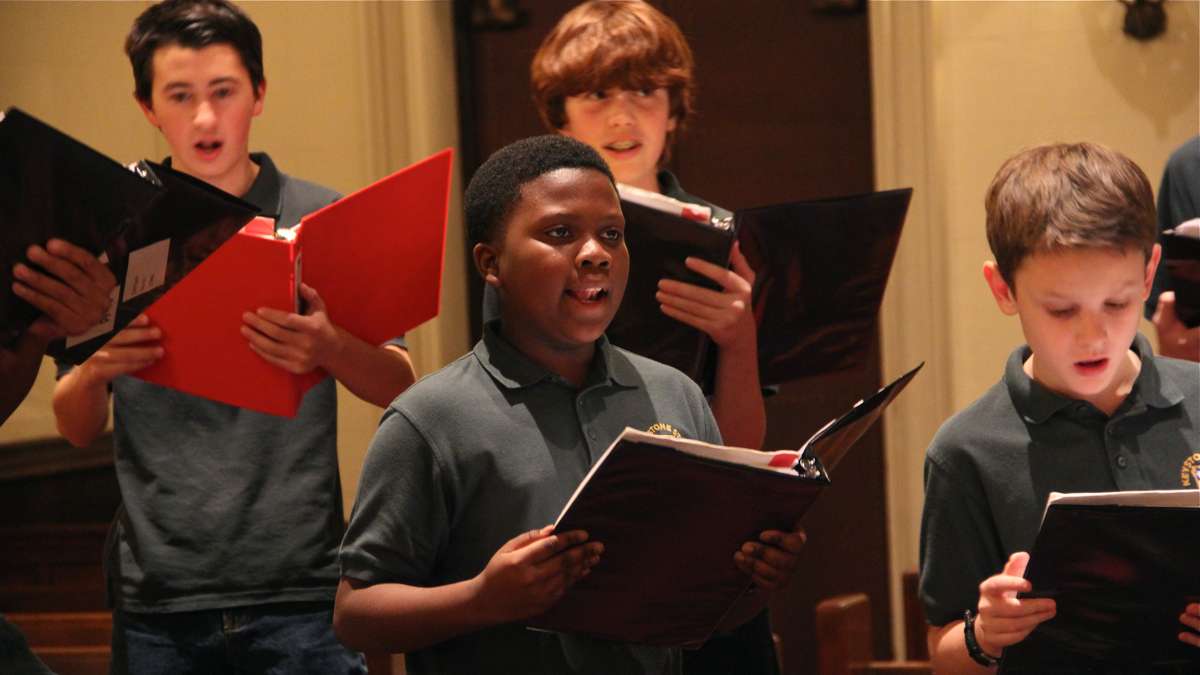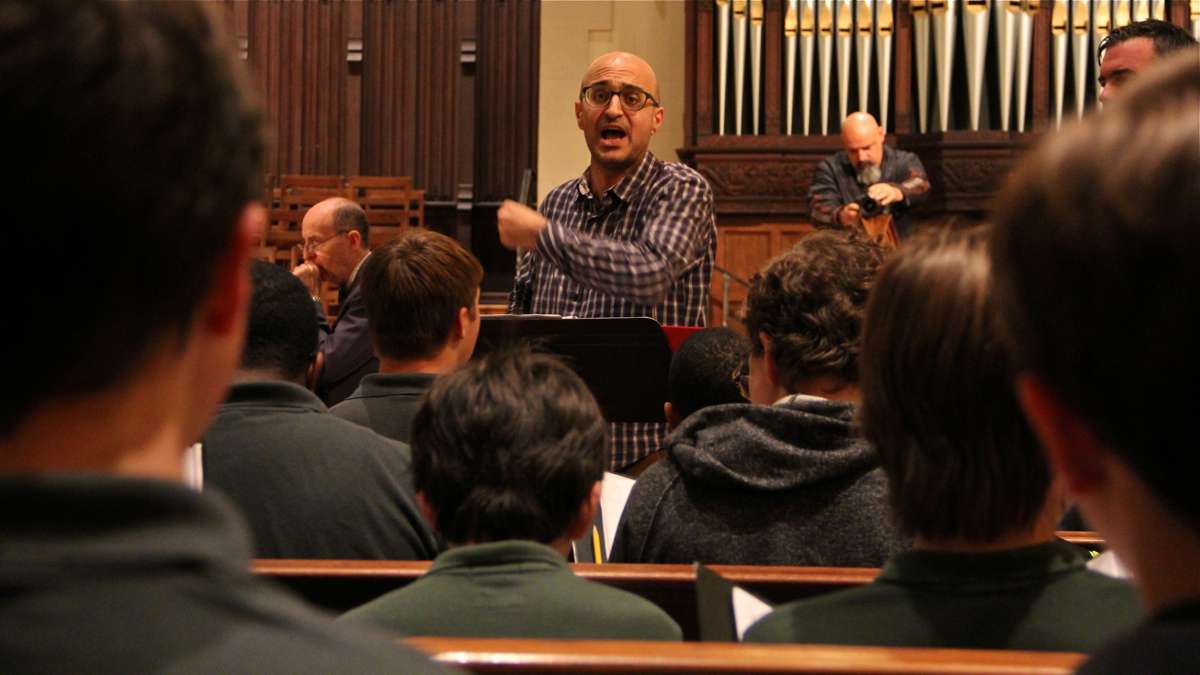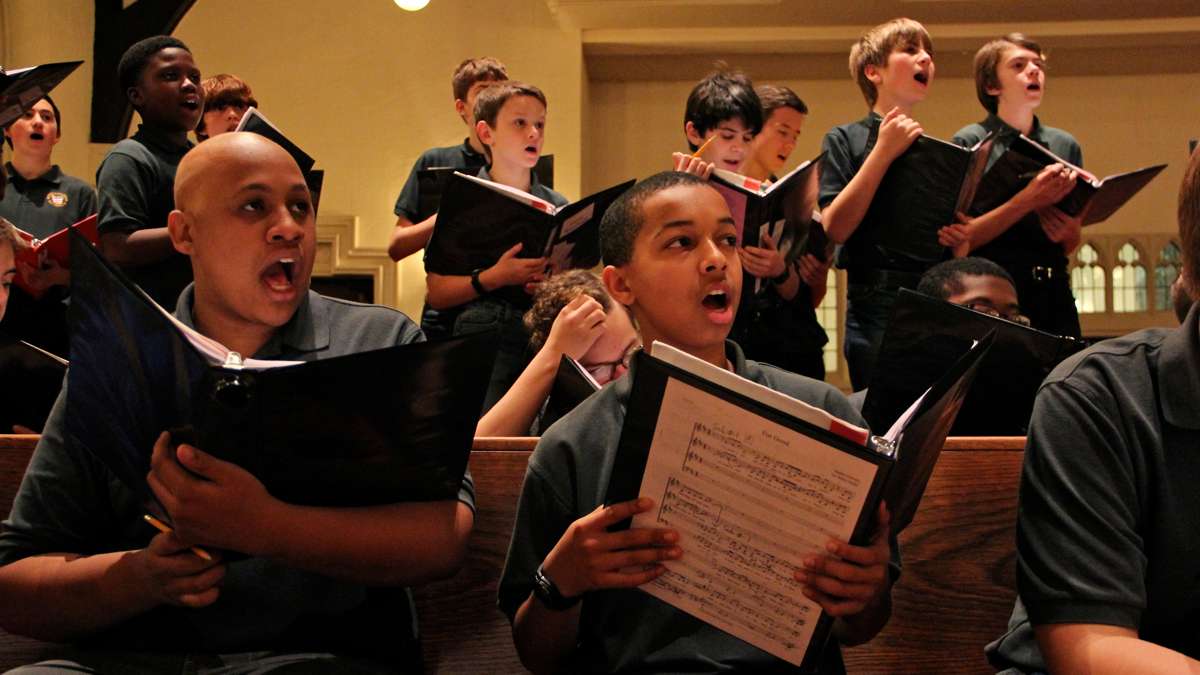Keystone Boychoir learns Arabic to bridge boundaries with song
ListenThe Keystone Boychoir singers, ranging from 8 to 18 years old, gathered Wednesday evening at a Presbyterian Church in Philadelphia to rehearse for a weekend premiere.
The piece, “Chants of the East,” is a collection of folk tunes from the greater Syrian region, collaged together for orchestra by Lebanese composer Marcel Khalife. The work was commissioned by Al-Bustan Seeds of Culture, a local presenter of Arab culture, whose instrumental players – the Takht Ensemble — will perform the piece with full choir at Haverford College Saturday night.
The Arabic songs are familiar to many people from Syria, Lebanon, Jordan, Israel, and Iraq — but not teenagers from Philadelphia.
“The vowels, and shapes you make with your mouth, are different from English,” said Adam Saah, 16, who does not speak Arabic. “A lot is deep in your throat.”
While Adam worked to master the subtle inflections and diction of the Arabic lyrics, he acknowledged he doesn’t know their meaning. Most of the songs are about love, longing, and folk stories that do not culturally translate.
More important than the meaning, for the moment, is getting the “aw” sound right.
The boys are trained to hit vowels a certain way. An ‘a’ is ‘aw’ in Western choral music, but ‘eah’ in Arabic. The music of the Middle East is rife with quarter-notes, which can sound to a Western singer like a half-note sliding out of tune. It’s a lot to get used to.
“We are unteaching them. Things we have trained them to do for years, we are asking them to do differently,” said Steve Fisher, the co-founder and music director of the 16-year-old choir.
The political situation is not lost on these boys, as they sing the music springing from a region that has a tense relationship with the U.S.
The Boychoir, which has learned music from many countries and travels abroad annually to perform. has found the Arabic music to be the most challenging.
“You can see the boys going, ‘Are we allowed to sing this music? Are we allowed to sing the word ‘Allah?'” said Fisher, referring to a Sufi poem the choir sang in a previous concert. “Any time you can use music to bridge boundaries, that’s a powerful thing.”
Editor’s Note: The audio version of the story incorrectly made reference to an Islamic chant in an upcoming concert. The Sufi poem was actually sung by the boys in a previous concert.
WHYY is your source for fact-based, in-depth journalism and information. As a nonprofit organization, we rely on financial support from readers like you. Please give today.






